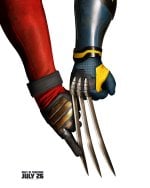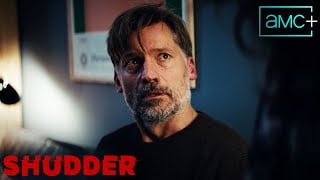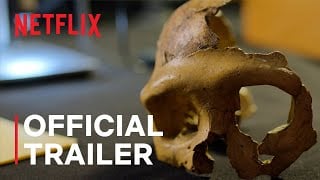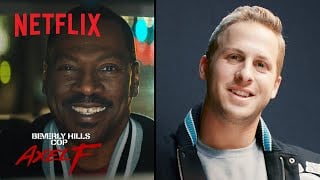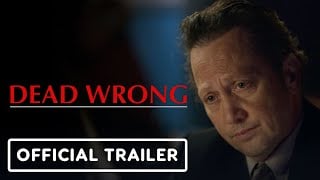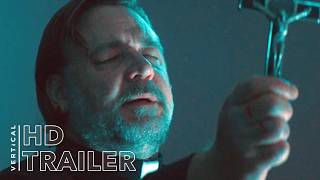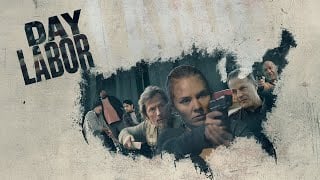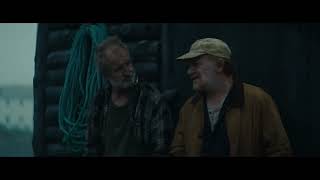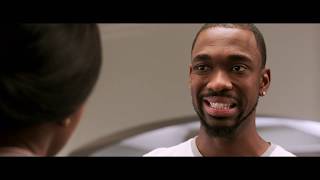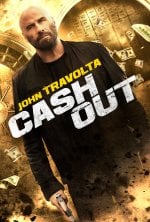Latest Movie Trailers & Videos
Nightwatch: Demons Are Forever
Official Trailer
Secrets of the Neanderthals
Official Trailer
Beverly Hills Cop: Axel F
Clip:Jared Goff Learned Detroit from Axel Foley
The Image of You
Official Trailer
Touch
Official Trailer
Jim Henson Idea Man
Official Trailer
Ride
Official Trailer
In Good Hands 2
Date Announcement
School of Magical Animals 2
Official Trailer
Summer Camp
Official Trailer
She Rises Up
Official Trailer
Dead Wrong
Official Trailer
Cora Bora
Official Trailer
The Exorcism
Official Trailer
Blink Twice
Official Trailer
Day Labor
Official Trailer
The Last Movie Ever Made
Official Trailer
Invisible Nation
Official Trailer
Hazard
Official Trailer
Sweetland
Official Trailer
Sira
Official Trailer
Power
Official Trailer
Dinotrux (series)
Official Trailer
2 Minutes of Fame
Official Trailer
New Movies Coming Out This Week
City Hunter
Netflix
Challengers
Nationwide
Unsung Hero
Nationwide
Boy Kills World
Limited
Nowhere Special
Limited
Knuckles (limited serie...
Paramount+
Cash Out
Limited
Cinderella's Revenge
Limited
Breathe
Limited
The Feeling That the Ti...
Limited
Infested
Shudder
Bloodline Killer
VOD / Digital
Dancing Village: The Cu...
Limited
Humane
Limited
Break
Limited
The King Tide
Limited
Terrestrial Verses
Limited
Impulse
VOD / Digital
The Barkers: Mind the C...
VOD / Digital
My Divorce Party
VOD / Digital
Stargazer
VOD / Digital
Butterfly in the Sky
VOD / Digital
The Idea of You
Prime Video
Kingdom of Heaven Movie Review
originally posted many years ago
I think it's fair to assume that the Crusades were about something. If you read history, they were about intolerance and fear, a religion asserting itself against opposing ideologies which, in reality, were not all that opposing. If you could talk to the men and women who lived in the Crusades, then you'd have a different perspective. You would hear dozens of reasons for why soldiers and peasants alike went to war—for blind loyalty to a blind pope, for riches, for glory, to protect their family, to protect themselves, and maybe to find spiritual answers in the sword and flame. The Crusades had passionate motives, even if they were not all just. As a knight in Kingdom of Heaven says of Jerusalem, the Crusades were about nothing because they were about everything.
Watching Kingdom of Heaven, the Crusades are merely about nothing. The Holy Land is at stake, and thousands of Christians and Muslims have taken up arms, but without a clear reason why. Sometimes characters will stand on a hill overlooking a recent battlefield, still teeming with death, and talk about why, but it's never believable. When these soldiers talk about God, about His will and about the futility of the Crusades, they sound like they're reading soliloquies off a page. What do these people feel, we wonder, what goes through a man's mind in all of this? Never mind the cinematic cock and bull of unwavering valor and goodness—those cliches are so common that viewers have learned to overlook them. What's missing from Kingdom of Heaven is a clear presentation of true, spontaneous human drama, scenes where we see what the characters genuinely think and not what the screenwriter tells them to think.
Kingdom of Heaven, directed by Ridley Scott, has no human core. It has sweeping action, epic locales and a few wonderful performances, but without soulful outpourings of passion, motive or even love, we are removed from the film's grand scale. I felt I was watching a History Channel special on the Crusades, disconnected, general and narrated without emotion. Scott's own Gladiator suffered from many of the same problems, but at least Gladiator was articulate about the glory of Rome, and at least the hero, Maximus, was a man and not an avatar. At least Gladiator was about something.
The hero of Kingdom of Heaven is an avatar, and we care about him as we care about names in a history book. His name is Balian (Orlando Bloom) and he begins as a lowly blacksmith in a small French town. We see him angrily beating hot iron, beneath the phrase "what good is a man who does not better the world?" carved into a ceiling beam, and we think for a second that we might like this guy. We at least feel a bit of sympathy for him, since Balian just recently lost his wife and child. Right on cue, Godfrey, Baron of Ibelin (Liam Neeson), rides into town, bearing odd news—he is Balian's long lost father. Godfrey also requests that Balian join him on a Crusade to Jerusalem to help protect the Holy City from the Muslim army, led by the legendary Saladin (Ghassad Massoud). Balian refuses, but Godfrey reminds Balian that he may be able to pray for the soul of his wife, who committed the mortal sin of suicide, at Jerusalem. Balian thinks it over for a second, nods, and heads off to glory.
For the first half of the movie, the time when I most wanted to know what Balian was thinking, he hardly says anything. We're sort of expected to root for him and not ask pesky questions like "who is Balian?" and "what sort of man is he?". What's worse, we can't find these answers by ourselves, since Scott seems to purposely shroud Balian in mystery. There's a scene where Balian is on a boat to Jerusalem, staring off into the horizon thinking about something (what?!). The next shot shows the boat being tossed about in a CGI thunderstorm. The very next shot shows the boat sinking. The final shot of the sequence: Balian wakes up on a beach, brushes himself off and walks away silently, looking quite bored with what has just happened. Who is this guy?!
Eventually, Godfrey dies and imparts his status as a knight and Baron of Ibelin upon his young son. As a baron, Balian now has connections with King Baldwin IV of Jerusalem (Edward Norton), a leper near his final days. Waiting to usurp Baldwin's throne is Guy de Lusignan (Marton Csokas), who despises the King's current diplomacy with the Muslims. Baldwin has maintained peace with Saladin's army, with help from a few level-headed Christians like Tiberias (Jeremy Irons) and Guy's wife, Sibylla (Eva Green), but the hotheaded behavior of extremists like Guy makes war almost inevitable. Soon Balian, the last remaining noble knight, finds himself leading the Christian army in defense of Jerusalem.
Emerging in the middle section of Kingdom of Heaven, where we learn a little about the politics of twelfth century Jerusalem, is a curious fact about the Crusades. Ridley Scott makes the point that a certain degree of respect existed between Christians and Muslims, but that extremists on both sides ultimately turned the relationship from one of pleasant coexistence to brutal war. We get the impression that King Baldwin and Saladin do not really wish to fight, but that the pressures and treachery of their subjects have led them to strife. There's one scene where the vast Christian and Muslim armies face each other on a huge plain, ready for battle. Baldwin and Saladin ride out between the armies to, we assume, throw a few insults at each other before another signature Ridley Scott bloodbath. But when Saladin sees the condition of his opponent's health, he calls off his soldiers and promises to send Baldwin his finest physicians.
I admire this section of Kingdom of Heaven precisely because the concept of peace and respect in war is so unusually strong. I also like it because it reveals some fantastic performances, particularly Jeremy Irons as a just man who has lost all hope and Marton Csokas as the very loathable Guy. Ghassad Massoud has the good fortune to play one of the few three-dimensional Muslim characters in American movie history. But the most interesting character by far is King Baldwin, a man so boyishly kind, so unexpectedly wise and so tragically scarred that we never notice he is played by Edward Norton. I had to blink a few times when I saw his name listed in the end credits. For the role of the leper king, Norton wears robes and an iron mask to conceal his deformities, but he speaks with the angelic voice of a once robust leader of men. Norton's work is phenomenal, so far removed from anything that he has ever done that we see the true complexities of his talent.
Orlando Bloom, by contrast, is a ghost in Kingdom of Heaven—Scott gives us no reason to consider Balian in human terms, and neither does Bloom in his wooden performance. Liam Neeson isn't in enough of the movie to save it. And Eva Green, the beautiful actress who was the best thing about last year's best movie, The Dreamers, is abused and rarely used by this movie's male-centric screenplay. The love story she shares with Balian is so laughably forced that I swear Green nearly cracks up in their obligatory sex scene.
Of course, I can't go much farther in a review about a Ridley Scott epic without talking about the battle scenes. They are abysmal. The same problems that applied to Troy and Alexander apply here—Scott's action is too dark and unfocused, turning the giant clashings of two armies into a big fat mess. We never can absorb what's going on in the battle scenes since Scott's sloppy, butcher's editing never allows for shots longer than a few seconds. In the climactic battle for Jerusalem, complete with giant fireballs, thousands of arrows and plenty of swordplay, the action is so muddled and indistinct that we can't get caught up in it. Again we are frustrated, because once again we are removed from Kingdom of Heaven in a moment when we should be heaved into the thick of its action. And as we watch this amateurish garbage unfold on the screen, we again wonder what all this fighting is for. Then we have to assume that somewhere there is a purpose behind Kingdom of Heaven, a point, a focus, or even a small reason why Ridley Scott felt he had to make it. But we can't be sure.
Watching Kingdom of Heaven, the Crusades are merely about nothing. The Holy Land is at stake, and thousands of Christians and Muslims have taken up arms, but without a clear reason why. Sometimes characters will stand on a hill overlooking a recent battlefield, still teeming with death, and talk about why, but it's never believable. When these soldiers talk about God, about His will and about the futility of the Crusades, they sound like they're reading soliloquies off a page. What do these people feel, we wonder, what goes through a man's mind in all of this? Never mind the cinematic cock and bull of unwavering valor and goodness—those cliches are so common that viewers have learned to overlook them. What's missing from Kingdom of Heaven is a clear presentation of true, spontaneous human drama, scenes where we see what the characters genuinely think and not what the screenwriter tells them to think.
Kingdom of Heaven, directed by Ridley Scott, has no human core. It has sweeping action, epic locales and a few wonderful performances, but without soulful outpourings of passion, motive or even love, we are removed from the film's grand scale. I felt I was watching a History Channel special on the Crusades, disconnected, general and narrated without emotion. Scott's own Gladiator suffered from many of the same problems, but at least Gladiator was articulate about the glory of Rome, and at least the hero, Maximus, was a man and not an avatar. At least Gladiator was about something.
The hero of Kingdom of Heaven is an avatar, and we care about him as we care about names in a history book. His name is Balian (Orlando Bloom) and he begins as a lowly blacksmith in a small French town. We see him angrily beating hot iron, beneath the phrase "what good is a man who does not better the world?" carved into a ceiling beam, and we think for a second that we might like this guy. We at least feel a bit of sympathy for him, since Balian just recently lost his wife and child. Right on cue, Godfrey, Baron of Ibelin (Liam Neeson), rides into town, bearing odd news—he is Balian's long lost father. Godfrey also requests that Balian join him on a Crusade to Jerusalem to help protect the Holy City from the Muslim army, led by the legendary Saladin (Ghassad Massoud). Balian refuses, but Godfrey reminds Balian that he may be able to pray for the soul of his wife, who committed the mortal sin of suicide, at Jerusalem. Balian thinks it over for a second, nods, and heads off to glory.
For the first half of the movie, the time when I most wanted to know what Balian was thinking, he hardly says anything. We're sort of expected to root for him and not ask pesky questions like "who is Balian?" and "what sort of man is he?". What's worse, we can't find these answers by ourselves, since Scott seems to purposely shroud Balian in mystery. There's a scene where Balian is on a boat to Jerusalem, staring off into the horizon thinking about something (what?!). The next shot shows the boat being tossed about in a CGI thunderstorm. The very next shot shows the boat sinking. The final shot of the sequence: Balian wakes up on a beach, brushes himself off and walks away silently, looking quite bored with what has just happened. Who is this guy?!
Eventually, Godfrey dies and imparts his status as a knight and Baron of Ibelin upon his young son. As a baron, Balian now has connections with King Baldwin IV of Jerusalem (Edward Norton), a leper near his final days. Waiting to usurp Baldwin's throne is Guy de Lusignan (Marton Csokas), who despises the King's current diplomacy with the Muslims. Baldwin has maintained peace with Saladin's army, with help from a few level-headed Christians like Tiberias (Jeremy Irons) and Guy's wife, Sibylla (Eva Green), but the hotheaded behavior of extremists like Guy makes war almost inevitable. Soon Balian, the last remaining noble knight, finds himself leading the Christian army in defense of Jerusalem.
Emerging in the middle section of Kingdom of Heaven, where we learn a little about the politics of twelfth century Jerusalem, is a curious fact about the Crusades. Ridley Scott makes the point that a certain degree of respect existed between Christians and Muslims, but that extremists on both sides ultimately turned the relationship from one of pleasant coexistence to brutal war. We get the impression that King Baldwin and Saladin do not really wish to fight, but that the pressures and treachery of their subjects have led them to strife. There's one scene where the vast Christian and Muslim armies face each other on a huge plain, ready for battle. Baldwin and Saladin ride out between the armies to, we assume, throw a few insults at each other before another signature Ridley Scott bloodbath. But when Saladin sees the condition of his opponent's health, he calls off his soldiers and promises to send Baldwin his finest physicians.
I admire this section of Kingdom of Heaven precisely because the concept of peace and respect in war is so unusually strong. I also like it because it reveals some fantastic performances, particularly Jeremy Irons as a just man who has lost all hope and Marton Csokas as the very loathable Guy. Ghassad Massoud has the good fortune to play one of the few three-dimensional Muslim characters in American movie history. But the most interesting character by far is King Baldwin, a man so boyishly kind, so unexpectedly wise and so tragically scarred that we never notice he is played by Edward Norton. I had to blink a few times when I saw his name listed in the end credits. For the role of the leper king, Norton wears robes and an iron mask to conceal his deformities, but he speaks with the angelic voice of a once robust leader of men. Norton's work is phenomenal, so far removed from anything that he has ever done that we see the true complexities of his talent.
Orlando Bloom, by contrast, is a ghost in Kingdom of Heaven—Scott gives us no reason to consider Balian in human terms, and neither does Bloom in his wooden performance. Liam Neeson isn't in enough of the movie to save it. And Eva Green, the beautiful actress who was the best thing about last year's best movie, The Dreamers, is abused and rarely used by this movie's male-centric screenplay. The love story she shares with Balian is so laughably forced that I swear Green nearly cracks up in their obligatory sex scene.
Of course, I can't go much farther in a review about a Ridley Scott epic without talking about the battle scenes. They are abysmal. The same problems that applied to Troy and Alexander apply here—Scott's action is too dark and unfocused, turning the giant clashings of two armies into a big fat mess. We never can absorb what's going on in the battle scenes since Scott's sloppy, butcher's editing never allows for shots longer than a few seconds. In the climactic battle for Jerusalem, complete with giant fireballs, thousands of arrows and plenty of swordplay, the action is so muddled and indistinct that we can't get caught up in it. Again we are frustrated, because once again we are removed from Kingdom of Heaven in a moment when we should be heaved into the thick of its action. And as we watch this amateurish garbage unfold on the screen, we again wonder what all this fighting is for. Then we have to assume that somewhere there is a purpose behind Kingdom of Heaven, a point, a focus, or even a small reason why Ridley Scott felt he had to make it. But we can't be sure.
You're browsing the archives, check out the latest movie news.


